Research Library
You can search for publications by selecting a category or keyword. All publications containing the selected category or keyword will be displayed below.
Categories
Keywords
Categories
Keywords
- Show all
- ADHD
- Anxiety/Panic
- Burnout
- Cancer
- Cardiovascular disease
- Chronic pain
- Cognitive function
- Cortisol/DHEA
- Costs
- Dementia
- Depressie
- Diabetes
- Global Coherence
- Hypertension
- Intuition & Consiousness
- Kids/Youth
- Leadership
- Meditation/Mindfulness
- Metabolic Syndrome
- Obesity/Eating disorder
- Pregnancy
- PTSD
- Resilience
- Schizophrenia
- Science HRV & Coherence
- Sleep quality & fatigue
- Social Coherence
- Stress
Short-Term Effects of Heart Rate Variability Biofeedback on Working Memory
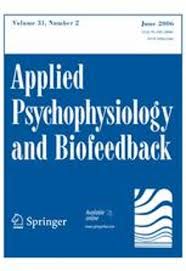
Drawing upon the well-documented impact of long-term heart rate variability biofeedback (HRVB) on psychophysiological responses, this study seeks to explore the short-term effects arising from a single HRVB session during and after paced breathing exercise. The research aligns with the neurovisceral integration model, emphasizing the link between heart rate variability (HRV) levels and cognitive performance. Therefore, a randomized controlled trial employing a between-subjects design was conducted with 38 participants. Each
read more...Psychophysiological coherence training to moderate air traffic controllers’ fatigue on rotating roster

The nature of the current rotating roster, providing 24-h air traffic services over five irregular shifts, leads to accumulated fatigue which impairs air traffic controllers’ cognitive function and task performance. It is imperative to develop an effective fatigue risk management system to improve aviation safety based upon scientific approaches. Two empirical studies were conducted to address this issue. Study 1 investigated the mixed effect of circadian rhythm disorders and resource depletion on controllers’ accumulated fatigue. Then, study 2 proposed a potential biofeedback solution of quick coherence technique which can mitigate air traffic controllers’ (ATCOs’) fatigue while on
read more...Heart Rate Variability Biofeedback to Treat Anxiety in Young People With Autism Spectrum Disorder: Findings From a Home-Based Pilot Study
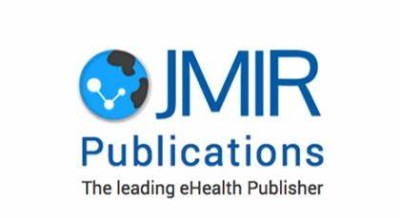
Background: People with autism spectrum disorder (ASD) frequently experience high levels of anxiety. Despite this, many clinical settings do not provide specialist ASD mental health services, and demand for professional support frequently outstrips supply. Across many sectors of health, investigators have explored digital health solutions to mitigate demand and extend the reach of professional practice beyond traditional clinical settings.
read more...
Following the Rhythm of the Heart: HeartMath Institute’s Path to HRV Biofeedback
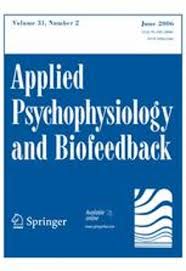
This paper outlines the early history and contributions our laboratory, along with our close advisors and collaborators, has made to the field of heart rate variability and heart rate variability coherence biofeedback. In addition to the many health and wellness benefits of HRV feedback for facilitating skill acquisition of self-regulation techniques for stress reduction and performance enhancement, its applications for increasing social coherence and physiological synchronization among groups is also discussed. Future research directions and applications are also suggested.
read more...Psychophysical Coherence Training Regulating Air Traffic Controller's Heart Rate Variability and Resilience to Fatigue

Abstract. Heart Rate Variability (HRV) can reflect individuals’ cognitive workload objectively. HRV measurement is a non-invasive method to evaluate relevant physiological changes in a human body. Physiological changes and cognitive processes are associated with the cardiac dynamic autonomic control, and thus to influence individuals’ ability to cope with fatigue and achieve resilience. As a dynamic process to be learned, resilience can be formed and improved through Quick Coherence Training in a short time. To study the regulatory effects of
read more...Does Heart Rate Variability Biofeedback Enhance Executive Functions Across the Lifespan? A Systematic Review

Abstract
The scope of this systematic review was to summarize the existing literature on the effects of heart rate variability biofeedback (HRV-BF) on executive functions (EFs) across the lifespan. Specifically, it aimed to investigate the factors that may affect the efficacy of HRV-BF interventions, such as the study population, duration and intensity of the intervention, or the technical equipment. This review was conducted according to the Preferred Reporting Items for Systematic Reviews and Meta-Analyses (PRISMA) guidelines. Studies that
Heart rate variability biofeedback in chronic disease management: A systematic review
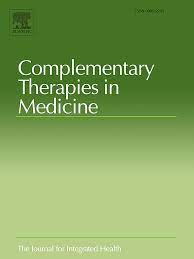
Background: Heart rate variability biofeedback (HRVB) is a non-pharmacological intervention used in the management of chronic diseases.
Method: A systematic search was performed according to eligibility criteria including adult chronic patients, HRVB as main treatment with or without control conditions, and psychophysiological outcomes as dependent variables.
Results: In total, 29 articles were included. Reported results showed the feasibility of HRVB in chronic patients without adverse effects.
Mobile Heart Rate Variability Biofeedback as a Complementary Intervention After Myocardial Infarction: a Randomized Controlled Study
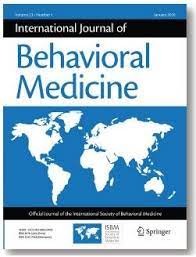
Methods
Forty-six outpatients aged 41 to 79 years with a documented MI were randomized to HRV-BF versus usual care. Generalized estimating equation (GEE) analyses were performed to test improvements in measures of short- and long-time HRV, namely, the standard deviation of the normal-to-normal intervals (SDNN) and well-being after 12 weeks of HRV-BF.
One-Minute Deep Breathing Assessment and its Relationship to 24-h Heart Rate Variability Measurements

Background: Heart rate variability (HRV), the change in the time intervals between successive pairs of heartbeats, is influenced by interdependent regulatory systems operating over different time scales to adapt to psychological challenges and environmental demands. Low ageadjusted HRV is predictive of upcoming health challenges in healthy people as well as a wide range of diseases in patients and correlates with allcause mortality. 24h HRV recordings are considered the “gold standard” and have greater predictive power on health risk
read more...Effect of Quick Coherence Technique on Psychophysiological Coherence, Heart Rate, Stress, Anxiety, Depression and Feeling State in Young Adults in India

HeartMath technology is an innovative technique to improving emotional mental health. A small-scale study was conducted to investigate the effect of quick coherence technique on psychophysiological coherence, stress, anxiety, depression and feeling state in young adults in India. Present study is in line with the past research done by S.D.Edwards (2016) on ‘Influence of Heartmath Quick Coherence Technique on Psychophysiological Coherence and Feeling States’. Six postgraduate students who complained of stress, anxiety and depression were
read more...Neurophysiological Approach by Self-Control of Your Stress-Related Autonomic Nervous System with Depression, Stress and Anxiety Patients.

Abstract: Background: Heart Rate Variability Biofeedback (HRVB) is a treatment in which patients learn self-regulation of a physiological dysregulated vagal nerve function. While the therapeutic approach of HRVB is promising for a variety of disorders, it has not yet been regularly offered in a mental health treatment setting. Aim: To provide a systematic review about the efficacy of HRV-Biofeedback in treatment of anxiety, depression, and stress related disorders. Method: Systematic review in PubMed and Web of Science
read more...A meta-analysis on heart rate variability biofeedback and depressive symptoms.

Heart rate variability biofeedback (HRVB) has been used for a number of years to treat depressive symptoms, a common mental health issue, which is often comorbid with other psychopathological and medical conditions. The aim of the present meta-analysis is to test whether and to what extent HRVB is effective in reducing depressive symptoms in adult patients. We conducted a literature search on Pubmed, ProQuest, Ovid PsycInfo, and Embase up to October 2020, and identified 721 studies.
read more...Comparative study of the impact of active meditation protocol and silence meditation on heart rate variability and mood in women

Aim: The aim of this study was to understand the impact of an active meditation protocol on heart rate variability (HRV) and mood in women as compared to breath-focused silence meditation. Materials and Methods: Women experienced two different practices of 20 min each: (a) control group: silence meditation focusing on breath and (b) experiment group: active meditation that included four activities, each lasting for 5 minutes – (1) simple humming, (2) coherent heart-focused breathing with 5s of inhalation and 5s of exhalation, (3) coherent
read more...Norms of HRV in Cancer

Recent research has begun to show the role of the activity of the vagus nerve in cancer prognosis. However, it remains unknown whether cancer severity can impair vagal nerve activity. This study combined data (N = 657) of five different cancers (colorectal, pancreas, prostate, lung and ovarian) concerning patients’ Heart Rate Variability (HRV), a vagal nerve activity index. These data were compared to HRV levels of a healthy sample in another study. In addition, we examined the moderating effects of age, gender and cancer stage on HRV. The mean
read more...The relationship between vagal nerve activity and clinical outcomes in prostate and non-small cell lung cancer patients

Abstract. Recent studies suggest that vagal nerve activity, indexed by heart rate variability (HRV), could have a prognostic role in cancer. However, most studies did not control adequately for confounders and included cardiac patients. Furthermore, the validity of this prognostic role needs to be tested in different types of cancer. The present study tested the prognostic role of HRV in prostate cancer (PC) and non-small cell lung cancer (NSCLC) patients, using a historical prospective design. HRV was derived from brief 10 sec ECGs obtained at
read more...You may need the vagus nerve to understand pathophysiology and to treat diseases

Can different pathophysiological mechanisms and risk factors leading to various diseases be linked with altered transmission of signals by one common pathway? The present article provides evidence for the hypothesis that adequate vagal nerve activity reduces the risk ofmajor diseases, via common basic mechanisms and interim risk factors. These diseases include cardiovascular disease, cancer, Alzheimer’s disease and the metabolic syndrome. Three basic mechanisms contribute to such illnesses: local oxidative stress and DNA damage, inflammatory
read more...Heart Rate Variability Biofeedback Improves Emotional and Physical Health and Performance: A Systematic Review and Meta Analysis

We performed a systematic and meta analytic review of heart rate variability biofeedback (HRVB) for various symptoms and human functioning. We analyzed all problems addressed by HRVB and all outcome measures in all studies, whether or not relevant to the studied population, among randomly controlled studies. Targets included various biological and psy-chological problems and issues with athletic, cognitive, and artistic performance. Our initial review yielded 1868 papers, from which 58 met inclusion criteria. A significant small to moderate effect size was found favoring HRVB, which does not differ from that of other effective treatments. With
read more...Heart Rate Variability, Health and Well-Being: A Systems Perspective

The development of a new tool, analytic device, or approach frequently facilitates rapid growth in scientific understanding, although the process is seldom linear. The study of heart rate variability (HRV) defined as the extent to which beat-to-beat variation in heart rate varies, is a rapidly maturing paradigm that integrates health and wellness observations across a wide variety of biomedical and psychosocial phenomena and illustrates this nonlinear path of development. The utility of HRV as an analytic and interventive technique goes far beyond its original application as a robust predictor of sudden cardiac death. This Research Topic aims to provide a conceptual
read more...The Impact of HeartMath Resiliency Training on HealthCare Providers
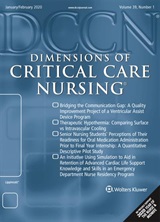
Background: Health care providers must think clearly and make critical decisionsunder stressful circumstances. Providing effective strategies for managing stress in the moment helps mitigate the physical, emotional, and psychological impacts associated with caring for others and promotes resiliency. Staff may also utilize these techniques with patients and their families to help alleviate the symptoms of stress that may be experienced as the result of illness. Aim: The purpose of this study was to measure whether HeartMath techniques reduce stress and improve resiliency in health care providers. Methods: Study participants were asked to complete the Personal and Organizational
read more...A 6-Week Worksite Positivity Program Leads to Greater Life Satisfaction, Decreased Inflammation, and a Greater Number of Employees with A1C Levels in Range Published: 2019

Objective: To determine whether a 6-week Positivity Program could impact employee cardiovascular inflammation, blood sugars, cortisol, dehydroepiandrosterone (DHEA), and/or life satisfaction.
Methods: Pre- and post-study blood draw and life satisfaction questionnaire tracked changes in 10 cardiovascular and inflammatory
read more...Emotion Regulation After Acquired Brain Injury: A Study of Heart Rate Variability, Attentional Control, and Psychophysiology
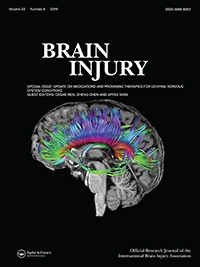
Primary Objective: To examine the efficacy of heart rate variability biofeedback (HRV-BF) to treat emotional dysregulation in persons with acquired brain injury.
Design: A secondary analysis of a quasi-experimental study which enrolled 13 individuals with severe chronic acquired brain injury participating in a community-based programme. Response-to-treatment was measured with two HRV resonance indices (low frequency
Heart Rate Variability: New Perspectives on Assessment of Stress and Health Risk at the Workplace

Introduction: Cardiovascular diseases are the highest cause of death in the world. Many of these deaths may be workplace related. Long hours at work seem to be influencing the increased risks of heart diseases. Workplace stress can be defined as the “discrepancies between the physiological demands within a workplace and the inability of employees to either manage or cope with such work demands.” The varied nature and perception of stress are exemplified from literature that shows stress being either a stimulus, or a response, or a stimulus–
read more...Combining Biofeedback with Stress Management Interventions: A Systematic Review of Physiological and Psychological Effects
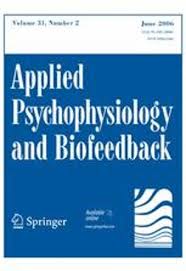
Current mental healthcare systems experience difficulties meeting the challenges of a growing population with elevated stress symptoms. Outpatient stress management interventions have already proven to be effective in routine care and recent technological advances now allow to expand such interventions, for example by adding a physiological component like biofeedback. Adding biofeedback to stress management interventions appears promising, but there is a lack of insight into the general conceptualization and evaluation of the resulting
read more...Exploring a 1-Minute Paced Deep-Breathing Measurement of Heart Rate Variability as Part of a Workers' Health Assessment
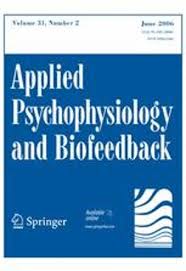
Low heart rate variability (HRV) is related to health problems that are known reasons for sick-leave or early retirement. A 1-minute-protocol could allow large scale HRV measurement for screening of health problems and, potentially, sustained employability. Our objectives were to explore the association of HRV with measures of health. Cross-sectional design with 877 Dutch employees assessed during a Workers’ Health Assessment. Personal and job characteristics, workability, psychological and mental problems, and lifestyle were measured with questionnaires. Biometry was measured (BMI, waist circumference, blood pressure, glucose, cholesterol). HRV was assessed with a 1-minute paced deep-breathing protocol and expressed as mean heart rate range (MHRR). A low MHRR indicates a higher health risk.
read more...Self-Regulatory Biofeedback Training: An Intervention to Reduce School Burnout and Improve Cardiac functioning in college students

With the detrimental relationship between school burnout and physiological and cognitive functioning now well documented, interventions to ameliorate school burnout symptomology are needed. This study examined the effectiveness of a self-regulatory biofeedback intervention program (Heart RateVariability Coherence Biofeedback Training [HRVCB]) in contrast to a protocol demonstrated to produce cognitive and physiological improvements (a high intensity interval training protocol [HIIT]) as well as a wait-list control condition at decreasing school
read more...Heart Rate Variability and Cognitive Bias Feedback Interventions to Prevent Post-Deployment PTSD: Results from a Randomized Controlled Trial

There is a long history of pre-deployment PTSD prevention efforts in the military and effective pre-deployment strategies to prevent post-deployment PTSD are still needed. Materials and Methods: This randomized controlled trial included three arms: heart rate variability biofeedback (HRVB), cognitive bias modification for interpretation (CBM-I), and control. The hypothesis was that pre-deployment resilience training would result in lower post-deployment PTSD symptoms compared with control. Army National Guard soldiers (n =
read more...An Overview of HRV Norms and Metrics

Healthy biological systems exhibit complex patterns of variability that can be described by mathematical chaos. Heart rate variability (HRV) consists of changes in the time intervals between consecutive heartbeats called interbeat intervals (IBIs). A healthy heart is not a metronome. The oscillations of a healthy heart are complex and constantly changing, which allow the cardiovascular system to rapidly adjust to sudden physical and psycho-logical challenges to homeostasis. This article briefly reviews current perspectives on the mechanisms that generate 24 h, short-term (~5 min), and ultra-short-term (<5 min) HRV, the importance of HRV, and its implications
read more...The effect of heart rate variability biofeedbacktraining on stress and anxiety: a meta-analysis
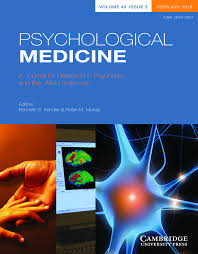
Background.Some evidence suggests that heart rate variability (HRV) biofeedback might be an effective way to treat anxiety and stress symptoms. To examine the effect of HRV biofeedback on symptoms of anxiety and stress, we conducted a meta-analysis of studies extracted from PubMed, PsycINFO and the Cochrane Library.Methods.The search identified 24 studies totaling 484 participants who received HRV biofeedback training for stress and anxiety. We conducted a random-effects meta-analysis. Results.The pre-post within-group effect size
read more...Heart rate variability biofeedback therapy and graded exercise training in management of chronic fatigue syndrome

OBJECTIVE: Chronic fatigue syndrome (CFS) is characterised by persistent fatigue, exhaustion, and several physical complaints. Research has shown cognitive behavioural therapy (CBT) and graded exercise training (GET) to be the most effective treatments. In a first step we aimed to assess the efficacy of heart rate variability biofeedback therapy (HRV-BF) as a treatment method comprising cognitive and behavioural strategies and GET in the pilot trial. In a second step we aimed to compare both interventions with regard to specific
read more...Validity of (Ultra-)Short Recordings for Heart Rate Variability Measurements

Objectives
In order to investigate the applicability of routine 10s electrocardiogram (ECG) recordings for time-domain heart rate variability (HRV) calculation we explored to what extent these (ultra-)short recordings capture the “actual” HRV.
Methods
The standard deviation of normal-to-normal intervals (SDNN) and the root mean square of successive differences (RMSSD) were measured in 3,387 adults. SDNN and RMSSD were assessed from (ultra)short recordings of 10s(3x), 30s, and 120s and compared to 240s–300s (gold
Cardiac Coherence Training to Reduce Anxiety in Remitted Schizophrenia, a Pilot Study
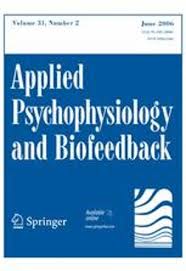
Health care that addresses the emotional regulation capacity of patients with schizophrenia confronted with daily stress may contribute to a less anxious life. A psycho-physiological training [cardiac coherence training(CCT)] focusing on emotion regulation is known to decrease anxiety for healthy individuals. We performed a pilot cross sectional survey to explore the benefits of CCT for clinically stable patients with schizophrenia. Ten patients were enrolled in the program consisting of twelve weekly 1-h session programs monitored over a 2-month
read more...Physical Activity, Mindfulness Meditation, or Heart RateVariability Biofeedback for Stress Reduction

Abstract: In contemporary western societies stress is highly prevalent, therefore the need for stress-reducingmethods is great. This randomized controlled trial compared the efficacy of self-help physical activity (PA), mindfulness meditation (MM), and heart rate variability biofeedback (HRV-BF) in reducing stress and its related symptoms. We randomly allocated 126 participants to PA, MM, or HRV-BF upon enrollment, of whom 76 agreed to participate. The interventions consisted of psycho-education and an introduction to the specific
read more...Biofeedback Intervention for Stress, Anxiety, and Depression among Graduate Students in Public Health Nursing

Globally, graduate students have been found to have high prevalence of mental health problems. With increasing severity of mental health problems on university campuses and limited resources for mental health treatment, alternative interventions are needed.This study investigated the use of biofeedback training to help reduce symptoms of stress, anxiety, and depression. A sample of 60 graduate students in public health nursing was randomly assigned to either the biofeedback intervention or the control group. Results indicated that biofeedback
read more...Heart Coherence: A New Tool in the Management of Stress on Professionals and Family Caregivers of Patients with Dementia
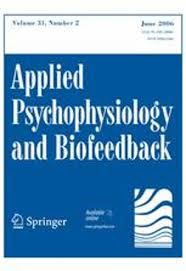
We describe a stress management intervention intended to reduce the damage and stress impact on the heart physiology and function of a group of caregivers (professional and non-professional) who work with patients with dementia. The intervention consisted in applying heartcoherence techniques in a population of 72 caregivers of patients with dementia (42 professional and 29 non-pro-fessional caregivers) who had high scores in heart stress and burden tests. Six months after the training they were able to
read more...Heart Rate Variability: New Perspectives on Physiological Mechanisms, Assessment of Self-regulatory Capacity, and Health Risk

Heart rate variability, the change in the time intervals between adjacent heartbeats, is an emergent property of interdependent regulatory systems that operates on different time scales to adapt to environmental and psychological challenges. This article briefly reviews neural regulation of the heart and offers some new perspectives on mechanisms underlying the very low frequency rhythm of heart rate variability. Interpretation of heart rate variability rhythms in the context of health risk and physiological and
read more...Heart Coherence Training Combined with Back School in Patients with Chronic Non-specific Low Back Pain
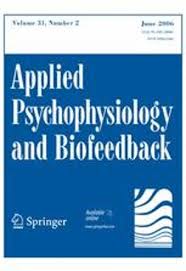
The aim of this study was to explore on which variables a stress reduction program based on heartcoherence can enhance the effects of a back school (BS) inpatients with chronic non-specific low back pain and to explore possible moderators for treatment success. A ret-rospective explorative design was carried out with 170patients with chronic non-specific low back pain. 89 Patients were admitted to BS and 81 patients were selected for BS and heart coherence training (BS–HCT). Six sessions of heart coherence were provided. At
read more...Cardiac coherence, self-regulation, autonomic stability, and psychosocial well-being

The ability to alter one’s emotional responses is central to overall well-being and to effectively meeting the demands of life. One of the chief symptoms of events such as trauma, that overwhelm our capacities to successfully handle and adapt to them, is a shift in our internal baseline reference such that there ensues a repetitive activation of the traumatic event. This can result in high vigilance and over-sensitivity to environmental signals which are reflected in inappropriate emotional responses and autonomic nervoussystem dynamics. In this article
read more...Effectiveness of emWave Biofeedback in Improving Heart RateVariability Reactivity to and Recovery from Stress
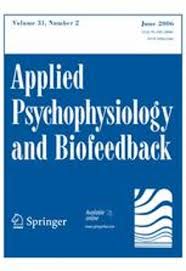
The current study examined the efficacy of heart rate variability (HRV) biofeedback using emWave, a publicly available biofeedback device, to determine whether training affected physiological tone and stress responses. Twenty-seven individuals aged 18–30 years were randomized to a treatment or no-treatment controlgroup. Treatment participants underwent 4–8 sessions of emWave intervention, and all participants attended pre-treatment and post-treatment assessment sessions during which acute stressors were
read more...Stress Management Based on Trait-Anxiety Levels and Sleep Quality in Middle-Aged Employees Confronted with Psychosocial Chronic Stress
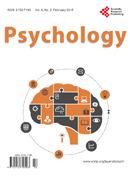
A stress management program using cardiac coherence was implemented after an organizational down-sizing. The study was conducted in nine voluntary workers in order to evaluate the efficiency of the program. A baseline evaluation was conducted on psychological variables (anxiety, perceived-stress, well- being and sleep), endocrine assessments (urinary cortisol excretion, alpha-amylase and salivary concentrations) and physiological recordings (sleep and heart rate variability). The low number of
read more...A pilot study of heart rate variability biofeedback therapy in the treatment of perinatal depression

Heart rate variability biofeedback (HRVB) therapy may be useful in treating the prominent anxiety features of perinatal depression. We investigated the use of this non-pharmacologic therapy among women hospitalized with severe perinatal depression. Three questionnaires, the StateTrait Anxiety Inventory (STAI), Warwick–Edinburgh Mental Well-Being Scale, and Linear Analog Self Assessment,were administered to 15 women in a specialized inpatient perinatal psychiatry unit. Participants were also contacted by telephone after discharge
read more...Coherence: A Novel Nonpharmacological Modality for Lowering Blood Pressure in Hypertensive Patients

This study examined the efficacy of teaching emotional self-regulation techniques supported by heart rhythm coherence training (emWave Personal Stress Reliever) as a means to quickly lower blood pressure (BP) in patients diagnosed with hyperten-sion. Previous studies have demonstrated systemic reductions in BP in both high stress populations and patients diagnosed with hypertension using this approach, but to the best of our knowledge, an investigation of their ability to produce immediate
read more...Biofeedback Intervention for Stress and Anxiety among Nursing Students: A Randomized Controlled Trial

Purpose.It has been well documented that nursing students across the world experience stress and anxiety throughout their education and training. The purpose of this randomized controlled study is to investigate the impact of biofeedback intervention program on nursing students’ levels of stress and anxiety during their first clinical training. Methods.Participants consisted of 60 second-year baccalaureate nursing students. The 30 participants in the biofeedback group received training on how to use the biofeedback device to assist in stress and
read more...The effect of a biofeedback-based stress management tool on physician stress: a randomized controlled clinical trial
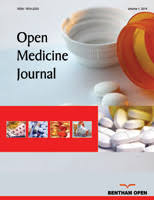
Background: Physicians often experience work-related stress that may lead to personal harm and impaired profes-sional performance. Biofeedback has been used to manage stress in various populations. Objective: To determine whether a biofeedback-based stress management tool, consisting of rhythmic breathing, actively self-generated positive emotions and a portable biofeedback device, reduces physician stress. Design: Randomized controlled trial measuring efficacy of a stress-reduction intervention over 28 days, with a
read more...Coherence and Health Care Cost -- RCA Actuarial Study: A Cost-Effectiveness Cohort Study

Chronic stress is among the most costly health problems in terms of direct health costs, absenteeism, disability, and performance standards. The Reformed Church in America (RCA) identified stress among its clergy as a major cause of higher-than-average health claims and implemented HeartMath (HM) to help its participants manage stress and increase physiological resilience. The 6-week HM program Revitalize you! was selected for the intervention including the emWave Personal Stress Reliever technology.
read more...Coherence training in children with attention-deficit hyperactivity disorder: cognitive functions and behavioral changes

Attention-deficit hyperactivity disorder (ADHD) is the most prevalent behavioral diagnosis in children, with an estimated 500000 children affected in the United Kingdom alone. The need for an appropriate and effective intervention for children with ADHD is a growing concern for educators and child-care agencies. This randomized controlled clinical trial evaluated the impact of the HeartMath self-regulation skills and coherence training program (Institute of HeartMath, Boulder Creek, California) on a population of 38 children with ADHD in
read more...New Hope for Correctional Officers: An Innovative Program for Reducing Stress and Health Risks

This study investigated the impact of a new stress management program on physiological and psychological stress and health risk factors among 75 correctional officers. The experimental group received training in emotion self-regulation techniques intended to reduce stress and health risk factors. Practice of the techniques was enhanced by heart rate variability feedback, which helped participants learn and sustain use of the self-management tools. Measures of physiological stress included cortisol, DHEA, cholesterol, triglycerides, fasting glucose
read more...Heart Rate Variability Biofeedback for Major Depression
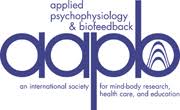
Heart rate variability for the treatment of major depression is a novel, alternative approach that can offer symptom reduction with minimal-to-no noxious side effects. The following material will illustrate some of the work being conducted at our laboratory to demonstrate the efficacy of heart rate variability. Namely, results will be presented regarding our published work on an initial open-label study and subsequent results of a small, unfinished randomized controlled trial. Autonomic nervous system (ANS) dysfunction
read more...A Controlled Pilot Study of Stress Management Training of Elderly Patients With Congestive Heart Failure
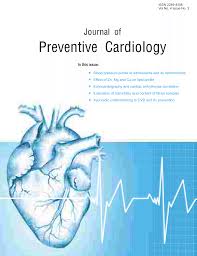
The purpose of this study was to evaluate the effect of stress management training on quality of life, functional capacity, and heart rate variability in elderly patients with New York Heart Association classI–III congestive heart failure (CHF). While substantial research exists on stress management training for patients with coronary heart disease, there are few data on the value of psychosocial training on patients with CHF. Thirty-three multi ethnic patients (mean age, 66±9 years) were assigned through incomplete randomization to one of two
read more...The Impact of a New Emotional Self-Management Program on Stress, Emotions, Heart Rate Variability, DHEA and Cortisol
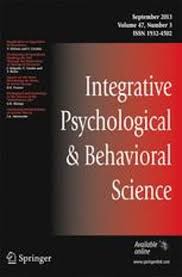
This study examined the effects on healthy adults of a new emotional self-management program, consisting of two key techniques,"Cut-Thru" and the "Heart Lock-In." These techniques are designed to eliminate negative thought loops and promote sustained positive emotional states. The hypotheses were that training and practice in these techniques would yield lowered levels of stress and negative emotion and cortisol, while resulting in increased positive emotion and DHEA levels over a one-month period. In addition, we
read more...The Effects of Emotions on Short-Term Power Spectrum Analysis of Heart Rate Variability

This study utilizes heart rate variability analysis to examine a new method of intentionally shifting emotional states, and demonstrates that positive emotions lead to alterations in sympathovagal balance that may be beneficial in the treatment of hypertension. Anger, on the other hand, was shown to significantly increase sympathetic activation.
read more...The Effects of Emotions on Short-Term Power Spectrum Analysis of Heart Rate Variability

Introduction: This study utilizes HRV analysis to examine a new method of intentionally shifting emotional states, and demonstrates that positive emotions lead to alterations in sympathovagal balance that may be beneficial in the treatment of hypertension. Anger, on the other hand, was shown to significantly increase sympathetic activation.
Summary: Salivary IgA, heart rate and mood were measured in thirty individuals before and after experiencing care or anger. Two methods
